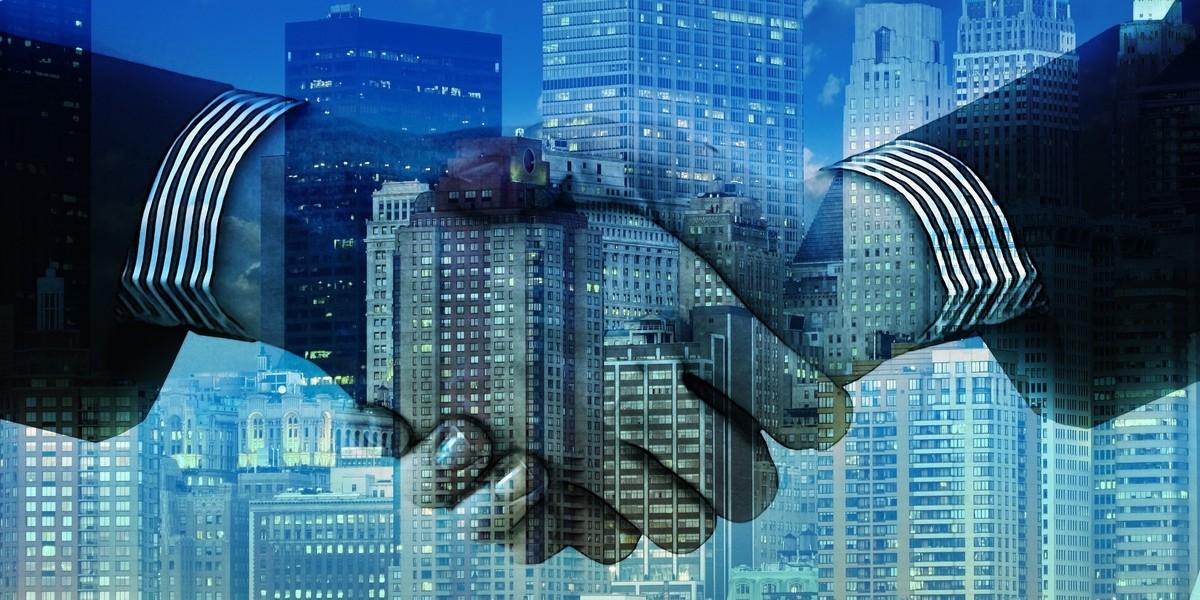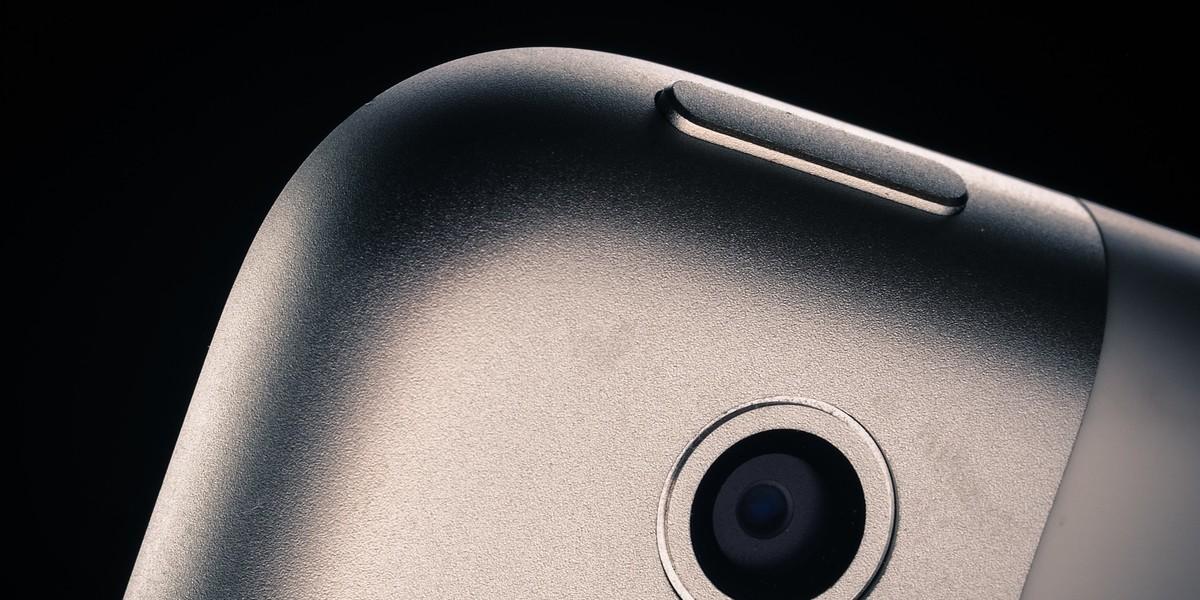Many startups dream of the day when they are snapped up by an industry giant, while others dread it. We chart some of the biggest and most notorious startup acquisitions in recent history…

1. Oculus VR
Acquired by Facebook for $2bn
The catalyst for the virtual reality revolution can be traced back to one moment. That was when Oculus Rift came to the fore with a hugely successful Kickstarter campaign raising $2 million in backing.
The device and the company were created by Palmer Luckey as a teenager. Since then Oculus VR has since gone from strength to strength.
Oculus now operates as Facebook’s virtual reality business unit and has recently acquired Irish display technology startup InfiniLED.
Just over two years after their takeover in 2014, it is clear to see the huge plans that Facebook has for virtual reality. Demos at Oculus Connect 3 in California demonstrated 360-degree live video (see above).
This allows users of the social network to interact with their friends’ digital avatars and conduct video calls within the VR.
2. Beats Electronics
Acquired by Apple for $3bn
When Apple took over in 2014 it was the largest acquisition in their history, though many commentators felt they had overspent. The deal was particularly notorious as it paved the way for Beats founder and hip hop giant Dr Dre to apparently become a billionaire.
Beats was founded back in 2006. At this time, digital music libraries saw great swathes of us inexplicably choosing to listen through iPhone headphones or tinny laptop speakers.
To address what they saw as a desecration of music quality, as well as a way to recoup some earnings lost from all those illegal downloads, Dr Dre and co-founder Jeff Iovine developed a range of speakers and headphones that were not only created with sound quality in mind, but with a distinct look that caught on fast. Wireless headphones were their next big hit, and with the continued development of Beats and the introduction of AirPods, Apple now controls a whopping 26% of the wireless headphones market.

3. WhatsApp
Acquired by Facebook for $19bn
Another of Facebook’s most talked about acquisitions was messaging app Whatsapp, not least for the sheer size of the deal (by far the largest spend on our list). Plus, with the launch of Facebook Messenger happening around the same time, it caused some confusion as to the purpose of the deal from Facebook’s point of view. Was it simply to cut off the competition?
The deal is seen not just as the largest but perhaps Facebook’s best ever. In terms of growing Facebook’s base worldwide, it was a masterstroke, giving the social media site access to users who live in regions where the internet is sporadic but where Whatsapp tends to be popular. With Mark Zuckerberg’s initiative internet.org aiming to get more of the world online, Facebook also clearly sees a future where more people turn to internet messaging apps.
Could Facebook’s advancement in this area spell be the beginning of the end of the phone call?

4. Innocent
Acquired by Coca-Cola for an undisclosed amount (remaining stakes were sold in 2013 for a reported £100 million)
There were a few raised eyebrows as this takeover was initially announced. Innocent had made much of its healthy purity and small, personable identity, with every bottle label speaking to you like an old quirky friend (a trend copied by numerous other brands with varying levels of nauseous effect).
Innocent was founded by university friends Richard Reed Adam Balon and Jon Wright, and after testing the smoothies at a music festival (revellers were asked to put empty bottles in bins labelled ‘yes’ or ‘no’ to determine whether they should keep making them), they all quit their jobs and hunted down investment to take the product to market. Being bought out by the multinational purveyor of fizzy drinks seemed to be the ultimate sell out, but that said, Coca-Cola’s acquisitions do tend to be ‘hands off’, allowing the individual brand to keep its identity.
Innocent head of brand and creative Dan Germain explained to theJournal.ie in May 2015, two years after the takeover, that though Coca-Cola owns 90% of the company, “they let us run the business in exactly the way that we want to run it. Their stance is we don’t know how to run your business, we can’t run your business.”

5. MySpace
Acquired by News Corporation for $580million
The takeover of MySpace by Rupert Murdoch’s media corporation spelt disaster for the once dominant social media site, which was launched back in 2003. When News Corp acquired the company in 2005, Facebook was catching up threateningly fast in terms of user base, though MySpace was still strongly in profit while Facebook was making a loss.
So what went wrong? Speaking to The Telegraph in 2013, Chris De Wolfe, co-founder of Myspace, claimed the site was in a strong position to rival Facebook and YouTube. He accused the corporation of ‘squandering’ $15bn of investors’ cash, with Murdoch himself even admitted they had ‘screwed up in every way possible’.
Among the mistakes, according to DeWolfe, were the strangulation of user growth and the refusal to reduce the number of adverts appearing on videos. A relaunch by Justin Timberlake in 2013 gave users more options for streaming and media content, and the company was bought by Time Inc in 2016.

6. Skype
Acquired by Microsoft for $8.5bn
The purchase of Skype in 2011 to replace Windows Live Messenger was Microsoft’s biggest ever. Previously purchased by eBay, this takeover was met with some caution by tech industry analysts. This was based on Microsoft’s tendency to take something that isn’t broken and tamper with it, as well as Skype’s long-term debt and loss-making status.
Fast forward 5 years and Skype is thriving, seemingly untouched by Microsoft’s typical meddling. Skype usage is estimated at more than a third of the world’s telephone traffic.

7. PayPal
Acquired by eBay for $1.5bn
This takeover was an obvious conclusion. In 2002 eBay counted for around two-thirds of their PayPal’s payment volumes. But the significance goes far beyond that. Assessing the takeover a decade later on venturebeat.com, Eric M. Jackson asserts that the deal changed Silicon Valley. The deal paved the way for more entrepreneurs and innovative payment platforms to rise up through the ranks.
As of 2015, PayPal and eBay became separate independently trading public companies. While seemingly being stronger together (PayPal’s valuation shot up to $50bn over a ten year period), it was decided that with new competition coming through, particularly in the shape of Apple Pay, the two companies different strategic priorities could hinder focus on their respective competitors.

8. YouTube
Acquired by Google for $1.65bn
With some lacklustre takeovers and launches to their name, it was feared that Google would destroy the hugely successful video hosting site. That turned out to be way off the mark. YouTube is now estimated to be worth around $15bn.
So what made it such a success? YouTube was growing fast at the time of acquisition, and strategically it was a great move for Google in terms of optimising their video search results. Google is credited with keeping the site user-friendly, solving IP issues and business problems behind the scenes. Meanwhile, YouTube continues to operate a site that consumers and video makers still love to this day.

9. Siri
Acquired by Apple for undisclosed sum (rumoured to be around $200m)
Apple and Siri are now so synonymous it is hard to imagine they were ever separate entities before Apple took over in 2010. Siri was first launched by Siri Inc as an application available on the App Store in the United States. Apple’s acquisition halted the company’s plans to make the software available to use on Android and other operating systems.
It also turned out to be Apple’s way of stealthily placing themselves as innovators in the search engine market, by using a technology that other search giants have yet to harness in any meaningful way.

10. Geometric Intelligence
Acquired by Uber for undisclosed sum
This one is the newest on the list, only being finalised in December 2016. It signified Uber’s move to becoming a more AI driven company.
The move may provide an even stronger hint that Uber is set to expand beyond car transportation, a reinvention that some say will push them into the same league as the likes of Google, Amazon and Apple. It’s one to keep an eye on as AI increasingly becomes part of our existence in ways we may not even realise.














